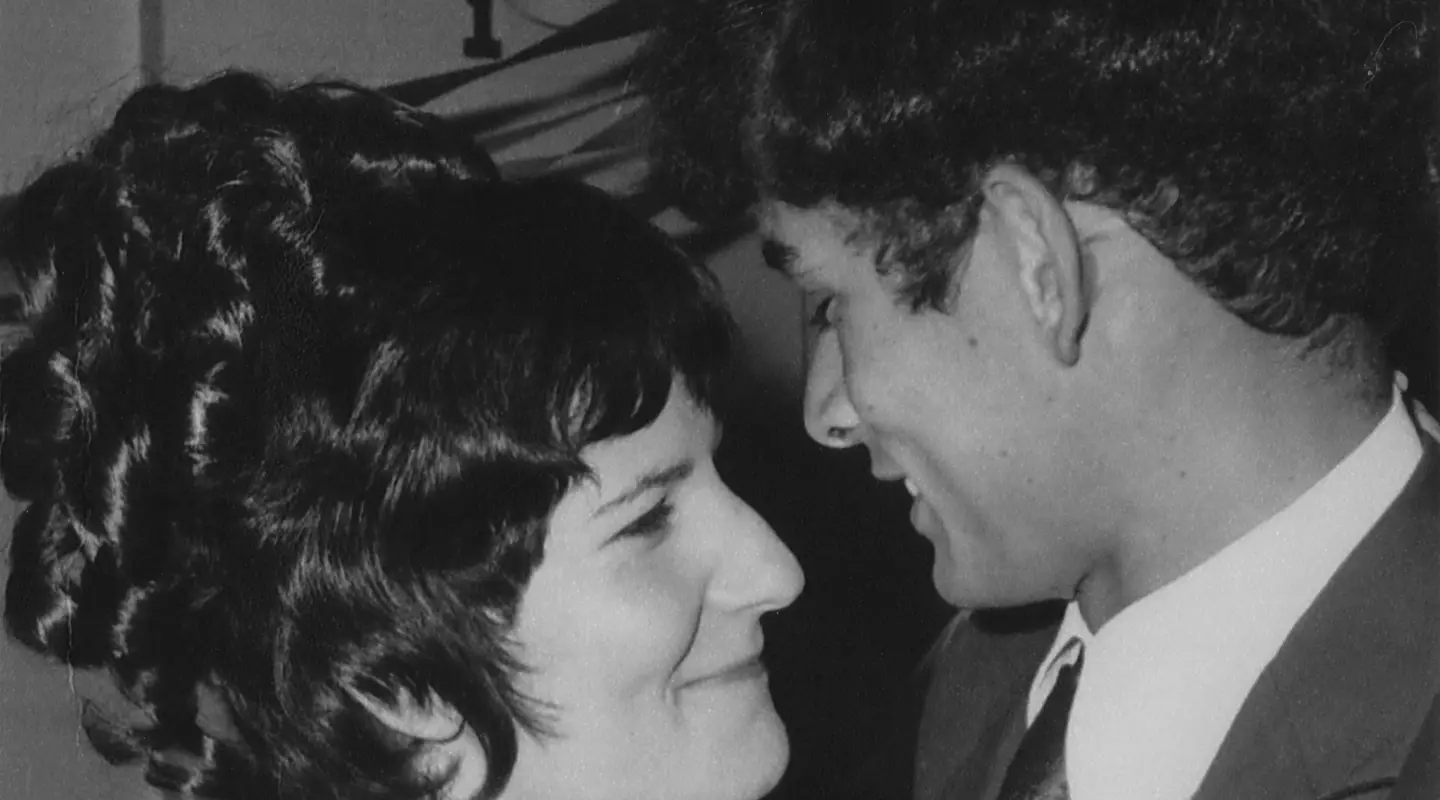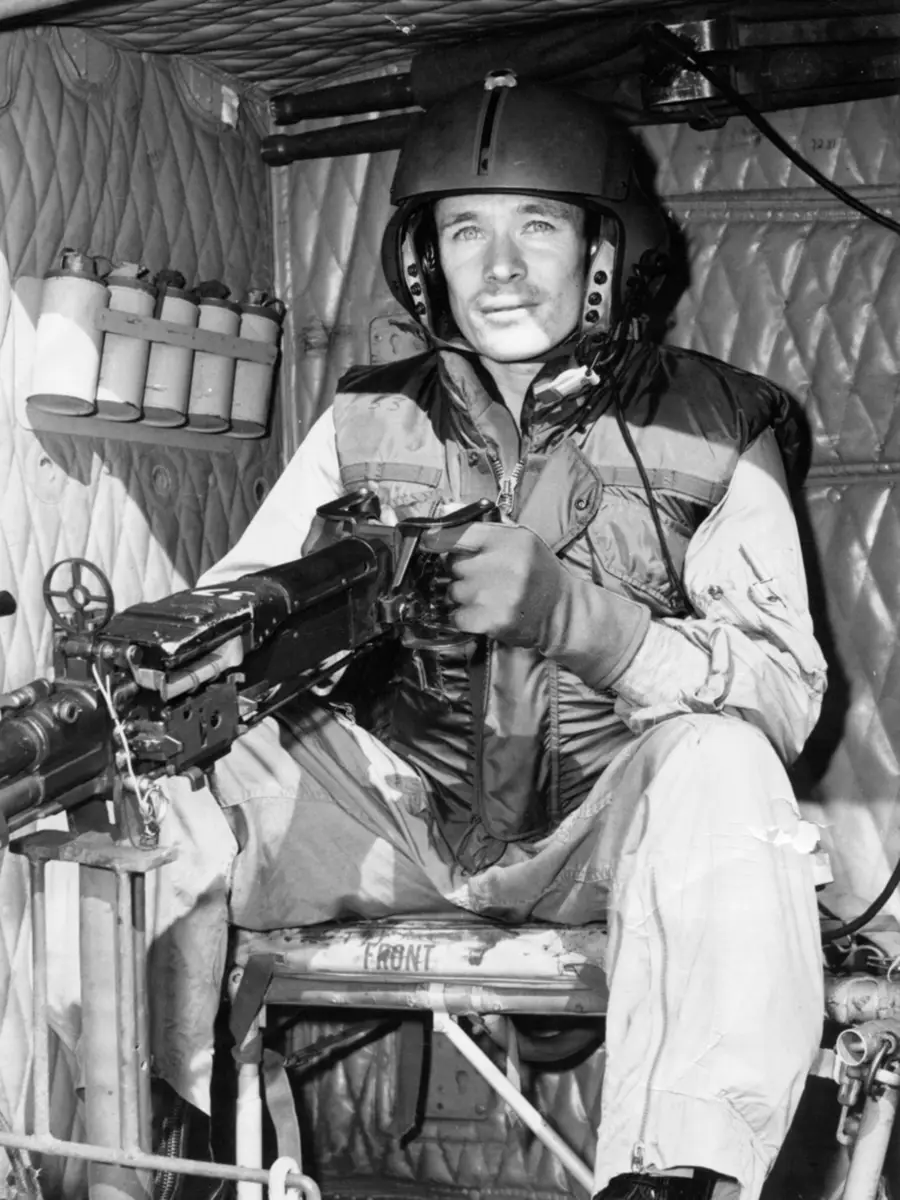Angela Mertens, Wife of Returned National Serviceman
I didn't have much understanding about the Vietnam War at the time. I was still in high school.
I remember my father was very distressed.
I remember that my mother said to me, do not marry a soldier. So you can imagine how that worked out. So that's my experience of the Vietnam War.
Ted just got back from the war. We met, fell madly in love, and I found with him, and I think looking back now, a lot of other bits, a lot of them did just want to get married and settle back into what was normal life, as we call it.
I don't think they were ready for it.And I know that they came back with lots of scars.
It was little things that we just didn't understand at the time. When the children were young, and even until they left home, he didn't talk about the war very much at all.
When the children were older and he'd have a nightmare, he would then tell me about the nightmares. He didn't discuss much with the children.
Don't mention the war was a very big part, because you didn't and Ted would get very upset if you did say anything about it, or something would happen and a vet would be killed or commit suicide or be picked up drunk.
And it was very hard for them, the vets, to explain just what was happening, because they knew what was happening and they knew that we didn't understand, because you have to experience things to understand and feel.
Um, and that's what the Army does. It breaks these guys down to think the Army way, and then it just didn't put them back to get out of the Army way and back into normal people way.
It was just something they didn't do, and these guys had to figure it out themselves and we were sometimes the objects of their fury, and why didn't we understand?
And then they felt guilt, because they knew why we didn't understand.
Ted never ever came to terms with it. He could never understand or accept why they were treated so, and they were treated very badly on their return. They were sent home as quietly as possible.
Ted was, he was in a operation in the jungle. The word came through that his day number was up.
He was pulled out of that action. He came back, was told to have his shower, pack his things. He was leaving on the next plane out of Saigon.
So he never got to say goodbye to the guys that he'd been with. He was on a plane back to Sydney. He was given a ticket on the train back to Adelaide.
He was told to get into civvy (civilian) clothes, because it wouldn't be safe for him, and report to Keswick Barracks, when you get back to South Australia, you will be discharged. Goodbye.
Never ever ever got over that. Never ever got over, he learnt to live with not being welcomed into the RSL, told that it was a fake war.
Not to the people who died, it wasn't a fake war or were damaged. He learnt to live with it.
He went back to the RSL, did some work with it, and was vice president for a while. But he found that culture too very disturbing. He didn't just want to go and drink. He wanted something more that the little country RSLs couldn't provide at that time.
I've noticed a lot of the wives, we don't talk amongst ourselves as much like the men do. But I've talked to some of the ladies, and it is all still very personal to us.
And it's a hard journey to walk, and one that we walk by ourselves.
Somebody has to pay the price of war. And the butcher's bill is never paid, it's always played with the blood of the guys that die, and the blood of the guys that come back.
It is our right to get angry, and to say no to war. Especially when it's somebody else's war, and perhaps we should not be there and to please stop and think about it.
And that is why it's so important to get the repercussions of the war, and what it does to young men and families, to try and get that ahead and in the forefront of people's feelings.
And I'm still amazed at the number of year 12 students who still say, oh no, I will go and do my duty, wherever the government sees that fit for me to do. And we still do need an Army, I understand that, that we still need a Defence Force.
I just wish they would pick their wars better.
Angela Mertens fell in love and married her husband Ted after he returned from a tour of duty in Vietnam as a National Serviceman.
Raising a family in Port Pirie in South Australia, Angela learned that Ted and other returned soldiers were profoundly effected by their time in Vietnam and had great difficulty readjusting to civilian life.
Now a widow, Angela sees the experience of veterans’ partners and families as being a difficult, private and often lonely journey.
Accession: AWM2017.580.1.1
Ripples of Wartime
Ripples of Wartime is a series of short interviews with Australians involved in and affected by the Vietnam War.
Filmed by Malcolm McKinnon for Brink Productions, they were made in association with the stage production Long Tan, which premiered in Adelaide in 2017.
Recording servicemen and servicewomen, conscripts and volunteers, families of those who served, anti-war activists and protestors, displaced people and post-war immigrants – the project truly reflects the complex and divisive nature of the Vietnam War.


